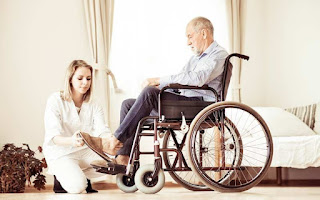It seems like you're interested in learning about empowering stroke survivors or perhaps advancements in stroke rehabilitation. Stroke is a medical condition that occurs when there is a disruption in blood flow to the brain, leading to damage and potentially causing a range of physical and cognitive impairments. Empowering stroke survivors involves providing them with the tools, resources, and support they need to regain independence, improve their quality of life, and manage the challenges they face after a stroke. Here are some ways in which stroke survivors can be empowered:
Comprehensive Rehabilitation: Stroke survivors often require rehabilitation to regain lost functions. Physical therapy, occupational therapy, and speech therapy can help them regain mobility, improve fine motor skills, and overcome communication difficulties.
Education and Information: Providing stroke survivors and their families with accurate and understandable information about the condition, recovery process, and available resources can empower them to make informed decisions about their care and lifestyle adjustments.
Support Groups: Connecting stroke survivors with support groups or online communities can help them share experiences, exchange advice, and offer emotional support. Interacting with others who have gone through similar experiences can reduce feelings of isolation.
Assistive Devices and Technology: Utilizing assistive devices and technology can enhance independence and quality of life. These may include mobility aids, communication devices, and apps designed to aid memory and cognitive function.
Lifestyle Modifications: Empowering stroke survivors involves helping them make necessary lifestyle changes, such as adopting a healthy diet, engaging in regular physical activity, managing stress, and avoiding risk factors that could lead to further strokes.
Setting Realistic Goals: Encouraging stroke survivors to set achievable goals, both short-term and long-term, can provide a sense of purpose and motivation. Celebrating small victories along the way can boost confidence and self-esteem.
Family and Caregiver Support: Involving family members and caregivers in the rehabilitation process is essential. They can provide emotional support, assist with daily activities, and ensure a safe and supportive environment.
Psychological Support: Stroke survivors may experience emotional challenges, such as depression, anxiety, or frustration. Access to mental health professionals or counselors can help them address these issues and develop coping strategies.
Advancements in Stroke Rehabilitation: Medical advancements, such as neuroplasticity-based therapies, virtual reality rehabilitation, and brain-computer interfaces, are continuously being researched to improve stroke rehabilitation outcomes.
Visit:neurology.pencis.com
#StrokeSurvivor#EmpowermentAfterStroke#StrokeRecovery#StrokeAwareness#BeyondStroke#StrongAfterStroke#StrokeSupport#NeverGiveUp#Resilience#StrokeWarrior#RoadToRecovery#StrokeThrive#InspiringJourney#OvercomingObstacles#MindOverStroke#Rehabilitation#HealthyMindHealthyBody#PhysicalTherapy#OccupationalTherapy#SpeechTherapy#NeuroRehab#MotivationMonday#WellnessWednesday#SelfCare#PositiveVibes#ProgressNotPerfection#SupportiveCommunity#CaringForCarers#Mindfulness#LifeAfterStroke

No comments:
Post a Comment